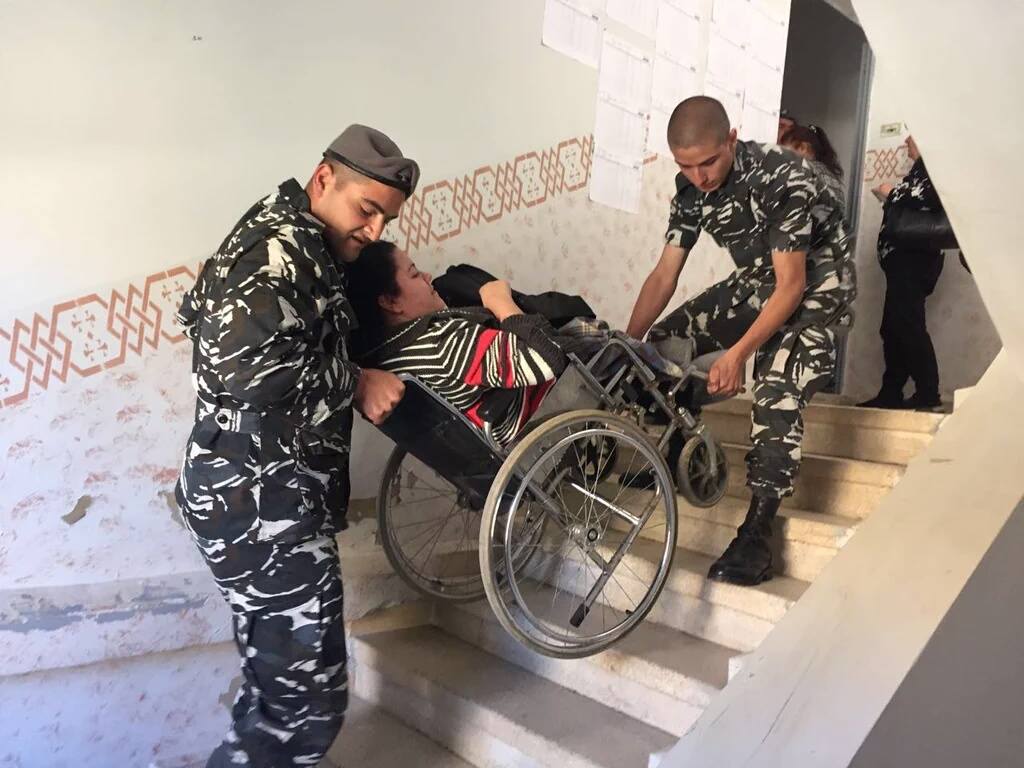I write this blog post as the highly anticipated municipal elections take place in Beirut, the Bekaa and Baalbeck-Hermel (and Mount Lebanon today*). It is needless to remind the reader that in a democracy, access to the ballot box is a fundamental right. In effect, it is the right which safeguards all others. Yet very few designated election sites are wheelchair/walker accessible.
عنصر #قوى_الأمن يساعد أيضاً مواطنة من ذوي الإحتياجات الخاصة للإدلاء بصوتها في مدرسة الشيخ جابر الاحمد الصباح. pic.twitter.com/i2UxQu3rqr
— قوى الامن الداخلي (@LebISF) May 8, 2016
The right of persons with special needs to run for and vote in elections was enshrined in the 220/2000 law, the 2007 Boutros Commission’s Draft Law25, the 25/2008 Electoral Law26, Enforcement Decree 2214/2009 and the 2010 draft law of Former Interior Minister Ziad Baroud. The latter also issued nine binding circulars to the Muhafizin (governors) and Heads of Municipalities, urging them to apply the law in order to facilitate the voting process and calling on municipalities to ensure the best facilities in this regard. Persons with special needs however are still marginalized and excluded from the election process and their rights are gravely violated, and campaigns to change this reality have mostly fallen on deaf ears.
Using the words of Hubert H. Humphrey, “it was once said that the moral test of government is how that government treats those who are in the dawn of life, the children; those who are in the twilight of life, the elderly; and those who are in the shadows of life, the sick, the needy and the handicapped.”
*Municipal Elections
Beirut, Bekaa, Baalbeck-Hermel: May 8
Mount Lebanon: May 15
South Lebanon, Nabatieh: May 22
North Lebanon, Akkar: May 29



I am extremely inspired along with your writing talents and also with the layout to your blog. Is that this a paid subject or did you customize it your self? Either way keep up the excellent high quality writing, it is uncommon to peer a nice weblog like this one today..